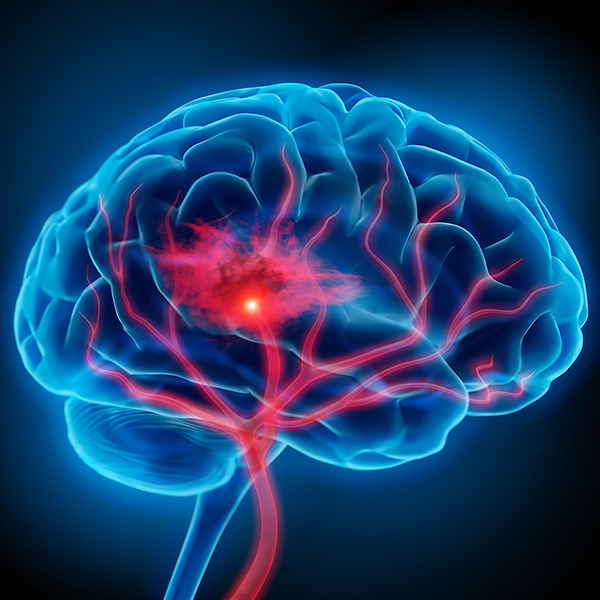Memory Disorders
Comprehensive Approach to Diagnose and Treat Memory Disorders
Loyola Medicine takes a multidisciplinary approach to Alzheimer’s disease, dementia and memory disorders. Our doctors, nurses and support staff are committed to your compassionate care from diagnosis to treatment and beyond.
Dementia encompasses many different conditions and is marked by a loss of cognitive abilities affecting attention, memory, language, logical reasoning and problem-solving skills that interfere with daily activities. It is caused by brain cell degeneration and usually progresses over time.
Some types of dementia include:
- Alzheimer’s disease (including early onset Alzheimer’s disease)
- Amnesia
- Behavioral variant-frontotemporal degeneration
- Corticobasal degeneration
- Creutzfeldt-Jakob disease (CJD)
- Dementia with Lewy bodies
- Frontotemporal lobar dementia (FTLD)
- Huntington’s disease-related dementia
- Mild cognitive impairment
- Mixed dementia
- Normal pressure hydrocephalus
- Parkinson’s disease-related dementia
- Post-traumatic memory loss
- Posterior cortical atrophy
- Primary progressive aphasia
- Progressive supranuclear palsy
- Vascular dementia
- Wernicke-Korsakoff syndrome
With treatment, you may notice an improvement in memory and cognition.
Why Choose Loyola for Treatment of Alzheimer’s, Dementia and Memory Disorders?
Loyola's neurology and neurosurgery departments provide exceptional care in an academic setting and train future leaders in neurology and neurosurgery.
Loyola is a primary care provider for Alzheimer’s patients for the state of Illinois and accepts referrals from doctors and national and local Alzheimer’s disease associations. In addition, Loyola’s neuro intensive care unit is staffed by trained neurology nurses who have earned Magnet status.
What Causes Memory Disorders?
Some forgetfulness is a normal part of aging. However, significant memory loss that starts to interfere with daily living is not. Because storing and retrieving memories involves several parts of the brain, a problem with any of these areas can lead to a disruption in the process.
Several conditions can involve memory loss, including:
- Bipolar disorder
- Brain infections, such as Lyme disease, syphilis or HIV/AIDS
- Brain surgery
- Brain tumor
- Cancer treatments, such as brain radiation, bone marrow transplant or chemotherapy
- Dementia
- Depression
- Head injury or concussion
- Insufficient amount of oxygen to the brain due to circulation or breathing problems
- Migraine headache
- Transient global amnesia, a sudden, temporary loss of memory with no known cause
- Transient ischemic attack (TIA), a type of stroke
- Traumatic event
Some conditions mimic some of the symptoms of dementia. These conditions include:
- Alcoholism-related vitamin deficiency
- Brain injury
- Depression
- Multiple sclerosis (MS)
- Side effects of medication
- Stroke
- Thyroid disease
- Tumors
How are Memory Disorders Diagnosed?
There is no single test that can confirm dementia, Alzheimer’s or the reason for your memory loss. Your doctor will administer tests to exclude other conditions that have similar symptoms.
You may be asked to bring along a close friend or family member who can help with questions about your recent symptoms.
To determine your diagnosis, your doctor will:
What are the Treatment Options for Memory Disorders?
Your treatment, which will depend on your particular condition, may include:
- Addressing sleep problems, exercise and nutrition
- Home environment modifications
- Medication
- Speech therapy and communication support
Beyond state-of-the art technology and the latest drugs, Loyola’s doctors, nurses and staff emphasize the importance of developing personal relationships with patients and their families.
Providing social support, education and resource guidance are key elements of treatment plans for Alzheimer's, dementia and other memory disorder patients at Loyola.
Ongoing Research and Clinical Trials for the Treatment of Memory Disorders
As an academic medical center, Loyola Medicine is dedicated to improving future treatments by conducting research on new medications and protocols. Loyola’s patients benefit from our research discoveries.

Request an Appointment
Our expert team provides comprehensive care for patients to determine neurological diseases, injuries and issues interfering with critical neurological functions. Schedule an appointment today.
Schedule a Telehealth Appointment
